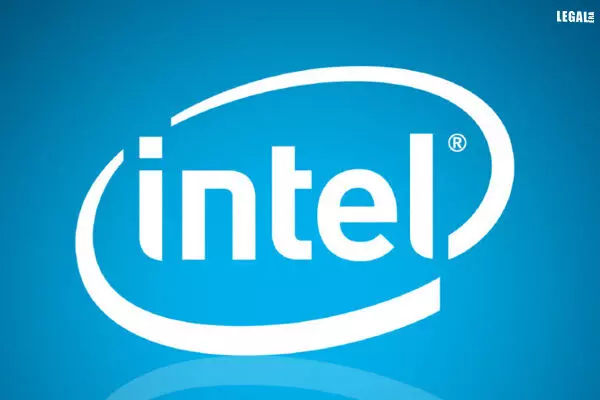- Home
- News
- Articles+
- Aerospace
- Artificial Intelligence
- Agriculture
- Alternate Dispute Resolution
- Arbitration & Mediation
- Banking and Finance
- Bankruptcy
- Book Review
- Bribery & Corruption
- Commercial Litigation
- Competition Law
- Conference Reports
- Consumer Products
- Contract
- Corporate Governance
- Corporate Law
- Covid-19
- Cryptocurrency
- Cybersecurity
- Data Protection
- Defence
- Digital Economy
- E-commerce
- Employment Law
- Energy and Natural Resources
- Entertainment and Sports Law
- Environmental Law
- Environmental, Social, and Governance
- Foreign Direct Investment
- Food and Beverage
- Gaming
- Health Care
- IBC Diaries
- In Focus
- Inclusion & Diversity
- Insurance Law
- Intellectual Property
- International Law
- IP & Tech Era
- Know the Law
- Labour Laws
- Law & Policy and Regulation
- Litigation
- Litigation Funding
- Manufacturing
- Mergers & Acquisitions
- NFTs
- Privacy
- Private Equity
- Project Finance
- Real Estate
- Risk and Compliance
- Student Corner
- Take On Board
- Tax
- Technology Media and Telecom
- Tributes
- Viewpoint
- Zoom In
- Law Firms
- In-House
- Rankings
- E-Magazine
- Legal Era TV
- Events
- Middle East
- Africa
- News
- Articles
- Aerospace
- Artificial Intelligence
- Agriculture
- Alternate Dispute Resolution
- Arbitration & Mediation
- Banking and Finance
- Bankruptcy
- Book Review
- Bribery & Corruption
- Commercial Litigation
- Competition Law
- Conference Reports
- Consumer Products
- Contract
- Corporate Governance
- Corporate Law
- Covid-19
- Cryptocurrency
- Cybersecurity
- Data Protection
- Defence
- Digital Economy
- E-commerce
- Employment Law
- Energy and Natural Resources
- Entertainment and Sports Law
- Environmental Law
- Environmental, Social, and Governance
- Foreign Direct Investment
- Food and Beverage
- Gaming
- Health Care
- IBC Diaries
- In Focus
- Inclusion & Diversity
- Insurance Law
- Intellectual Property
- International Law
- IP & Tech Era
- Know the Law
- Labour Laws
- Law & Policy and Regulation
- Litigation
- Litigation Funding
- Manufacturing
- Mergers & Acquisitions
- NFTs
- Privacy
- Private Equity
- Project Finance
- Real Estate
- Risk and Compliance
- Student Corner
- Take On Board
- Tax
- Technology Media and Telecom
- Tributes
- Viewpoint
- Zoom In
- Law Firms
- In-House
- Rankings
- E-Magazine
- Legal Era TV
- Events
- Middle East
- Africa
U.S. Patent Trial and Appeal Board Ruled in Favor of Intel Corp. in $2.18 Billion Verdict

U.S. Patent Trial and Appeal Board Ruled in Favor of Intel Corp. in $2.18 Billion Verdict
The U.S. Patent and Trademark Office’s Patent Trial and Appeal Board (PTAB) has ruled in favor of Intel Corp. and OpenSky LLC, after the companies managed to convince the Administrative Tribunal to nil one of the two patents behind one of the largest patent infringement verdicts in U.S. history.
The case dates back to March 2021, when the Jurors Waco, Texas, found that Intel infringed two semiconductor patents belonging to VLSI Technology LLC.
The Jury held that Intel owed VLSI $2.18 billion, with $675 million of the damages tied to infringement of U.S. Patent No. 7,725,759, which defines innovations meant to improve the performance of portable multimedia devices.
The Administrative Tribunal has ruled that seven claims from the patent were obvious in light of previously granted patents and patent application publications.
The seven include claims 14, 17, 18, and 24—the claims VLSI selected to put before the jury.
The latest decision in the long-winded patent dispute is noteworthy for more than just the eye-popping dollar amount at stake at the time of its announcement.
Initially the board had rejected Intel’s petition to challenge the patent, deferring to the U.S. District Court for the Western District of Texas, where Judge Alan D. Albright presided over VLSI’s lawsuit.
The PTAB relied upon the multi-factor test under which patent Judges are able to decline to institute patent validity trials. These factors include the expected trial date, whether a court has paused its proceedings for PTAB review, and the extent of overlapping issues.
The companies that were sued in Waco, such as Intel, found it particularly tough to get PTAB review, because the multi-factor test framework emphasizes the speed of parallel litigation.
Albright is known for keeping a fast docket and for his reluctance to pause cases for parallel PTAB proceedings.
After the landmark multibillion-dollar verdict, however, a then-unkown OpenSky filed a copy-cat version of Intel’s previously denied petition.
The Patent and Trademark Office (PTO) opined that the petition and one challenging the second VLSI patent underpinning the verdict each showed “compelling, meritorious” challenges worthy of PTAB review.
The PTO also found that OpenSky and the other challenger, Patent Quality Assurance LLC, had each abused the PTAB’s review process in an attempt to extract money from both VLSI and Intel.
Over the course of the proceedings, the PTO eventually excluded OpenSky and PQA from the proceedings, and the board of directors, over the objections of VLSI, eventually allowed Intel to join the two cases and represent OpenSky. Thereafter, OpenSky and PQA were later allowed to rejoin their petitions.



